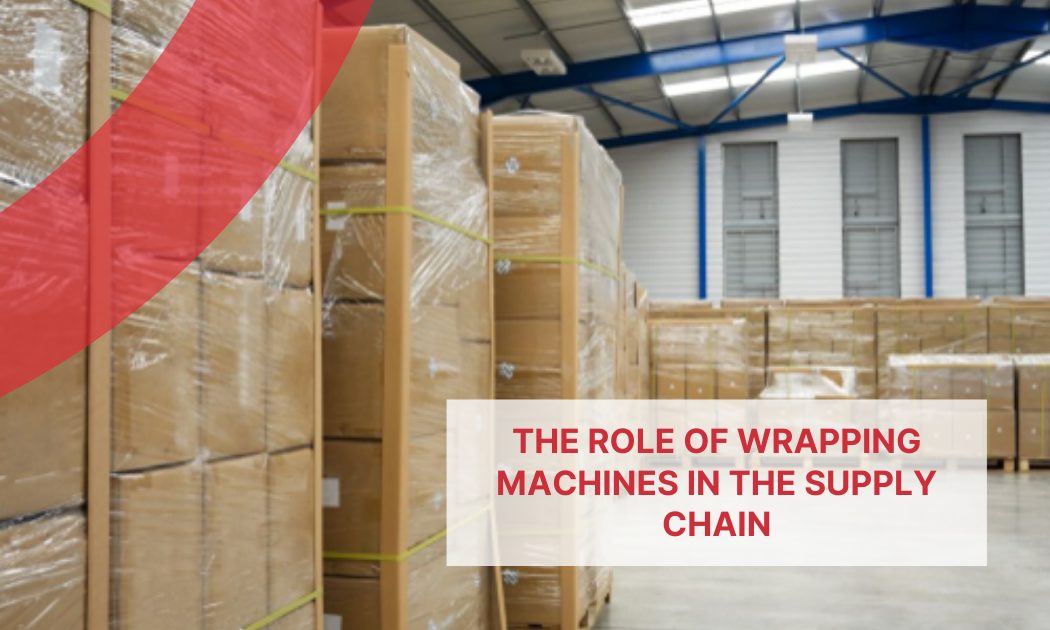Wrapping machines play a crucial role in the supply chain, not only by saving time and money but also by ensuring product integrity, here’s how they do it!
How Wrapping Machines Help Preserve Products in the Supply Chain
When transporting a product, it’s not just about moving it quickly but also ensuring its integrity in the broadest sense. In other words, avoiding issues during clearance checks or upon final delivery. Otherwise, these situations can lead to additional costs or even legal liabilities. Here’s how wrapping machines help maintain product integrity in the supply chain:
1. Safe Transportation
First and foremost, wrapping machines contribute to safe transportation—provided that goods are loaded correctly. Wrapping helps secure the load, making transportation easier. When using standard pallet sizes, there should be no significant issues. This is undoubtedly their greatest value in ensuring load integrity.
Nowadays, shipments and loads are standardized, which minimizes the risk of damage or breakage. Wrapping or strapping machines play a crucial role in maintaining this standardization.
2. Space Optimization
Space optimization is another key factor in maintaining product integrity. Once again, an organized load is essential. The advantage is that when only the necessary space is used, shipping issues are less likely to occur. A wrapping machine, thanks to the film, ensures that neither space nor material is wasted. Poorly utilized spaces can compromise load integrity, and this process helps minimize that risk.
3. Load Integrity in the Supply Chain
Load integrity is one of the greatest benefits provided by wrapping machines. By tightly securing and compressing the load with film, the risk of goods falling and getting damaged is significantly reduced. This is crucial, as falling goods lead to financial losses, wasted time, and safety hazards. However, it’s essential to adjust the wrapping process according to each pallet’s characteristics to avoid clearance issues. A wrapping machine performs this task far more efficiently and quickly than manual labor.
4. Load Cleanliness
Another benefit of wrapping machines is maintaining load cleanliness. Dust, liquids, and other contaminants can easily affect unprotected goods. Wrapping provides a protective barrier, keeping loads clean and preventing returns due to poor presentation. High-quality wrapping machines ensure both cleanliness and professional results.
5. Protection Against Contaminants
Beyond cleanliness, wrapping machines also protect against contaminants. This is not just about keeping products dust-free but also preventing exposure to harmful substances. For example, oil spills or chemical leaks could compromise the integrity of goods. A high-quality wrapping process significantly reduces these risks by providing an extra layer of protection and better load distribution.
6. Load Uniformity
Another advantage of automatic or semi-automatic wrapping systems is ensuring load uniformity. When loads are properly arranged and wrapped, pallet stability increases. This contributes to consistent load distribution, which is crucial for safe handling and storage. While complete symmetry is not always possible (such as with granulated materials), wrapping ensures the necessary level of uniformity.
7. Workforce Optimization
Wrapping machines help optimize labor by automating repetitive tasks, allowing workers to focus on higher-value activities such as quality control and inspections. This enhances product integrity by enabling workers to concentrate on ensuring proper palletization and traceability.
Additionally, automated wrapping helps improve load tracking. With scannable labels, it’s easier to identify and separate defective pallets, preventing larger shipping issues.
8. Worker Safety and Load Integrity
Automated and semi-automated wrapping machines also contribute to worker safety. By reducing manual handling, they minimize workplace risks. While proper palletization is still necessary, wrapping machines make the process safer and more efficient. Ultimately, worker safety plays a crucial role in maintaining load integrity.
9. Compliance with Quality Standards
Pallet wrapping follows strict quality standards. Maintaining load integrity is a key requirement, and different types of goods require specific wrapping methods. Standards such as ISO 445, 3676, and 3394 from AENOR define pallet types, dimensions, and acceptable load conditions. A high-quality wrapping machine ensures compliance with these regulations.
Integrate a Wrapping Machine into Your Business
Wrapping machines are an essential investment for companies looking to enhance efficiency and ensure professional, high-quality logistics operations. At Movitec, we offer a variety of wrapping and strapping solutions for all types of goods. Contact us today for more information!


